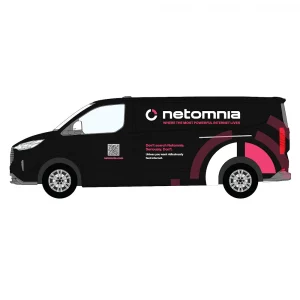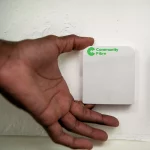Sponsored Links
UPD O2 UK Launch Biggest Public 4G Superfast Mobile Broadband Trial in London
Posted: 14th Nov, 2011 By: MarkJ

 Mobile operator O2 UK has today announced the launch of its first large-scale superfast Mobile Broadband service trial in the city of London. The trial will be based off 4G Long Term Evolution ( LTE ) technology and should deliver mobile internet speeds of between 25-50Mbps via 25 masts covering 15 square miles (i.e. Canary Wharf, Soho, Westminster, South Bank and Kings Cross).
Mobile operator O2 UK has today announced the launch of its first large-scale superfast Mobile Broadband service trial in the city of London. The trial will be based off 4G Long Term Evolution ( LTE ) technology and should deliver mobile internet speeds of between 25-50Mbps via 25 masts covering 15 square miles (i.e. Canary Wharf, Soho, Westminster, South Bank and Kings Cross).O2 claims that its LTE trial, which is due to last for 9 months, will be the country's biggest so far. However it will initially only involve 1,000 users (e.g. existing customers and selected small businesses). A lack of LTE capable handsets also means that the connections will, at least for now, be handled exclusively through Samsung USB Modems (Dongles) and 4G based Wi-Fi routers (Mi-Fi).
O2 UK's CEO, Ronan Dunne, said (The Guardian):
"There's no doubt that the mobile networks will have the capacity to support everything being connected. We will start the dialogue with business about what are the new use cases, putting onto mobile what we used to do on fixed line in the past."
"There's no doubt that the mobile networks will have the capacity to support everything being connected. We will start the dialogue with business about what are the new use cases, putting onto mobile what we used to do on fixed line in the past."
The technology itself will actually deliver peak download speeds of up to 150Mbps, although this will be shared out between many users and fall to average speeds of 25-50Mbps during the trial. O2 estimates that its future commercial deployment of 4G services would see even more demand for bandwidth and thus drop average speeds to 10-15Mbps.
By contrast Ofcom's first Mobile Broadband speed report, which was published in May 2011 (here), found that the current average UK mobile download speed was just 1.5Mbps (Megabits per second) - rising to 2.1Mbps in areas of "good 3G coverage" (note: fixed-line broadband ISP lines average out at just 6.8Mbps).
O2 is understood to have spent £500m upgrading its network in 2011 to support the new services and a similar amount will probably be spent in 2012. However the commercial deployment of UK 4G services is not expected to happen until late 2013 at the earliest because Ofcom has yet to auction off the related spectrum (here).
Dunne added:
"We'll all be ready to get off the blocks as soon as the spectrum is cleared. Nobody will have a national network on day one, but there is the opportunity to have significant coverage ready to go."
"We'll all be ready to get off the blocks as soon as the spectrum is cleared. Nobody will have a national network on day one, but there is the opportunity to have significant coverage ready to go."
It's worth pointing out that O2 has, since the end of 2009, also had a similar, but far smaller, trial of LTE technology running in the Slough area (here). Earlier this year O2 also warned (here) that its future 4G services could make intelligent use of the new platform to deliver only certain services at a faster speed (two tier mobile internet).
UPDATE 18th November 2011
Nokia Siemens Networks has confirmed that, under the contract with O2, it will provide its 2600MHz (2.6GHz) LTE radio equipment, Evolved Packet Core technology, Home Subscriber Server and FlexiPacket Microwave Radio nodes.. among other things.
O2 UK's current 3G (HSPA+ 900 / 2100 MHz) network provides voice and high speed data services of up to 14.4Mbps (21Mbps in the coming months), which are available to over 84% of the UK population.
Search ISP News
Search ISP Listings
Search ISP Reviews
Latest UK ISP News








Cheap BIG ISPs for 100Mbps+
150,000+ Customers | View More ISPs
Cheapest ISPs for 100Mbps+
Modest Availability | View More ISPs
Latest UK ISP News
Helpful ISP Guides and Tips
Sponsored Links
The Top 15 Category Tags
- FTTP (6722)
- BT (3863)
- Politics (3036)
- Business (2736)
- Openreach (2629)
- Building Digital UK (2488)
- Mobile Broadband (2434)
- FTTC (2132)
- Statistics (2102)
- 4G (2062)
- Virgin Media (1997)
- Ofcom Regulation (1761)
- 5G (1692)
- Fibre Optic (1587)
- Wireless Internet (1581)
Sponsored
Copyright © 1999 to Present - ISPreview.co.uk - All Rights Reserved - Terms , Privacy and Cookie Policy , Links , Website Rules






























